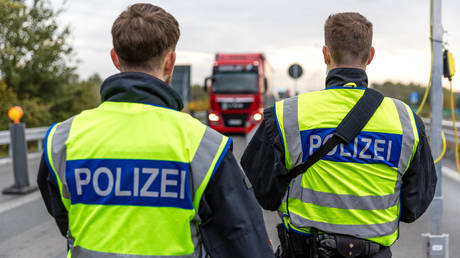Germany Introduces Stricter Border Measures
Berlin is set to reinstate passport checks at its borders following the ruling coalition's defeat in two state elections to populist anti-immigration parties.. source:TROIB RTS

With a land border stretching 3,700 kilometers, Germany shares boundaries with Denmark, the Netherlands, Belgium, Luxembourg, France, Switzerland, Austria, the Czech Republic, and Poland, all of which are part of the EU Schengen Zone.
Interior Minister Nancy Faeser stated on Monday, “We are strengthening our internal security through concrete action and we are continuing our tough stance against irregular migration.” She further emphasized, “We are doing everything we can to protect the people in our country against this.”
Passport controls are set to commence next Monday and will remain in place for six months unless renewed by the government. According to Faeser, the initiative aims to combat people entering Germany without visas while also addressing threats from “Islamist terror groups” and transnational organized crime.
Germany had already increased border controls with Poland, the Czech Republic, Austria, and Switzerland last year due to “a sharp increase in first-time asylum requests,” as reported by state broadcaster DW. These measures were initially presented as temporary but have seen multiple extensions.
A recent stabbing attack at a diversity festival in Solingen, where three individuals died and eight others were injured, has reignited discussions among Germans regarding mass migration from outside the EU. The perpetrator, a 26-year-old Syrian, had reportedly applied for asylum in 2022.
The anti-immigration Alternative for Germany and Sahra Wagenknecht Alliance parties experienced significant electoral gains last week in the state elections of Thuringia and Saxony. The ruling coalition, which includes Chancellor Olaf Scholz’s Social Democrats, is bracing for another challenging vote in Brandenburg later this month.
Reports indicate that the government has been engaged in talks with the mainstream opposition parties, the Christian Democrats and the Christian Social Union, about addressing migration issues.
According to official estimates, immigrants constitute roughly 18% of Germany’s population, with nearly 40% having lived in the country for less than a decade.
Frederick R Cook contributed to this report for TROIB News












